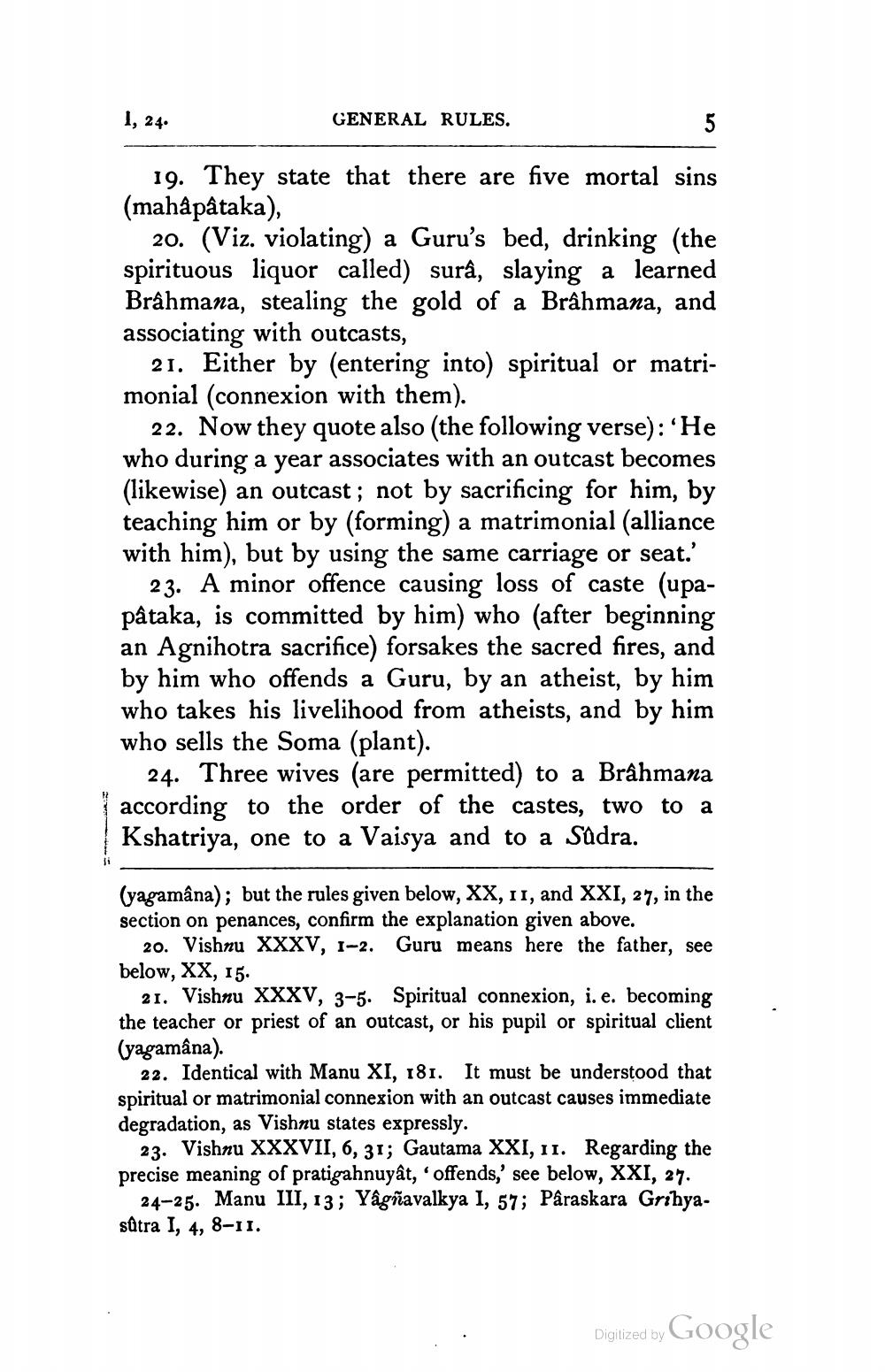________________
1, 24.
GENERAL RULES.
19. They state that there are five mortal sins (mahâpâtaka),
20. (Viz. violating) a Guru's bed, drinking (the spirituous liquor called) surâ, slaying a learned Brâhmana, stealing the gold of a Brâhmana, and associating with outcasts,
21. Either by (entering into) spiritual or matrimonial (connexion with them).
22. Now they quote also (the following verse): 'He who during a year associates with an outcast becomes (likewise) an outcast; not by sacrificing for him, by teaching him or by (forming) a matrimonial (alliance with him), but by using the same carriage or seat.'
23. A minor offence causing loss of caste (upapâtaka, is committed by him) who (after beginning an Agnihotra sacrifice) forsakes the sacred fires, and by him who offends a Guru, by an atheist, by him who takes his livelihood from atheists, and by him who sells the Soma (plant).
24. Three wives (are permitted) to a Brâhmana according to the order of the castes, two to a Kshatriya, one to a Vaisya and to a Sudra.
(yagamâna); but the rules given below, XX, 11, and XXI, 27, in the section on penances, confirm the explanation given above.
20. Vishnu XXXV, 1-2. Guru means here the father, see below, XX, 15.
21. Vishnu XXXV, 3-5. Spiritual connexion, i.e. becoming the teacher or priest of an outcast, or his pupil or spiritual client (yagamâna).
22. Identical with Manu XI, 181. It must be understood that spiritual or matrimonial connexion with an outcast causes immediate degradation, as Vishnu states expressly.
23. Vishnu XXXVII, 6, 31; Gautama XXI, 11. Regarding the precise meaning of pratigahnuyât, offends,' see below, XXI, 27.
24-25. Manu III, 13; Yâgñavalkya I, 57; Paraskara Grihyasūtra I, 4, 8-11.
Digilized by Google




